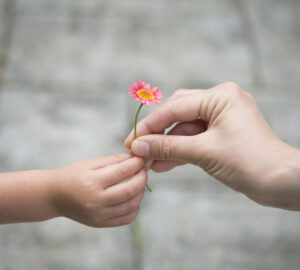
As parents, our children look for us to know how to respond to many events in life. You may have experienced your child falling down, and with an uncertain face, looking to you for your reaction. When we have an exaggerated and frightened response, they react in kind. When we come to them with a stance of, ‘you are okay, let’s see how you feel when you stand up,’ they also are able to have a calm response, even when they feel scared and even when they need to cry on your shoulder for a few minutes.
In this current time we are living, with a global pandemic circling the earth, we still can model behavior and response for our children, no matter what age they are. When so many things feel beyond our control, it’s important to pay attention to what we can have a hand in.
Limit screen time.
It is challenging to turn off our screens at any time, and even more so when we feel like we need to keep up with what is happening. This is also true for our children. Consider limiting their time, and your own time, on screens. Notice how you feel when you step away from the news and social media. If you have older children, invite them to notice how they feel too. Play games, walk outside in nature, or invite your children to cook with you. This is a wonderful time to invite more play into all of your lives.
Bring mindfulness into your family’s daily life.
Young children are naturals at this; as we get older, we become more distracted. An easy way to approach mindfulness is with your senses. The shower or bath is a natural place for this. Notice the water on your skin, the smell of your soap, and the texture of the washcloth. Talk to your children about this, and invite them to notice their many senses.
Invite gratitude into your day.
This can help to shift the perspective when times feel tough. Take turns with your children as you all say aloud or write down the things in your life for which you are grateful. They can be small or large. The most important thing is to take the time to notice them and spend some time considering them. If you want to go a little further, you can ask your children how they feel inside when they think of all the things for which they are grateful.



